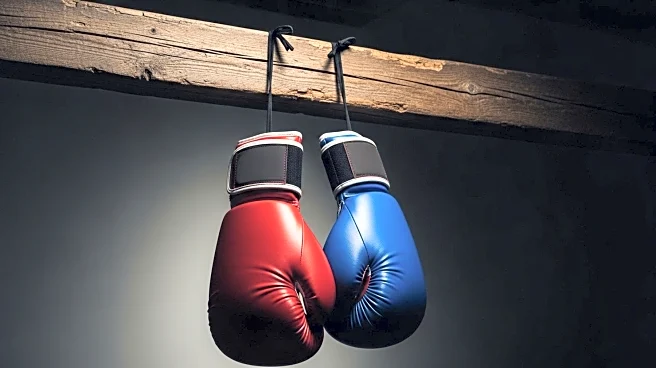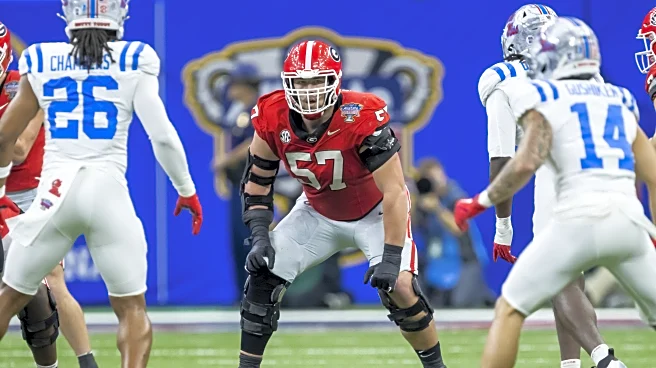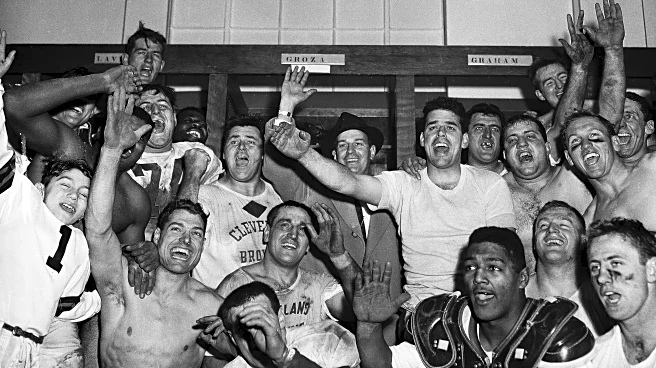What is the story about?
What's Happening?
Gennady Mashianov, coach of Dmitry Bivol, has criticized Saul 'Canelo' Alvarez for becoming a commercial boxer, suggesting that Alvarez has prioritized financial gain over competitive spirit. Mashianov expressed disappointment in Alvarez's recent performance against Terence Crawford, where he perceived Alvarez to be passive. The fight, which took place on September 14 in Las Vegas, resulted in Crawford becoming the undisputed champion at super middleweight. Mashianov noted that Alvarez's approach in the fight lacked aggression, despite Crawford being from a lighter weight division. Alvarez's record stands at 63 wins, 3 losses, and 2 draws, while Crawford remains undefeated with 42 wins.
Why It's Important?
The comments from Mashianov highlight a growing concern in the boxing community about the commercialization of the sport, where financial incentives may overshadow the competitive nature of boxing. Alvarez, a prominent figure in boxing, has been criticized for potentially prioritizing monetary gain over maintaining his titles and competitive edge. This shift could impact the sport's integrity and fan engagement, as audiences may lose interest if they perceive fights to be driven by financial motives rather than athletic prowess. The criticism also underscores the pressure on boxers to balance commercial success with maintaining their reputation and legacy in the sport.
What's Next?
The future of Alvarez's boxing career remains uncertain, as Mashianov speculates that Alvarez may not continue fighting for much longer. If Alvarez decides to retire or reduce his activity in the ring, it could lead to shifts in the super middleweight division, opening opportunities for other boxers to rise in prominence. Additionally, the boxing community may continue to debate the balance between commercial interests and competitive integrity, potentially influencing how future matches are marketed and perceived by fans.
Beyond the Headlines
Mashianov's comments also touch on the ethical considerations of boxing as a sport, where the pursuit of financial gain can conflict with the traditional values of competition and sportsmanship. This situation raises questions about the long-term impact on young athletes entering the sport and the cultural perception of boxing as a profession. The dialogue initiated by Mashianov may prompt discussions on how to preserve the sport's integrity while accommodating the commercial realities of modern professional boxing.














